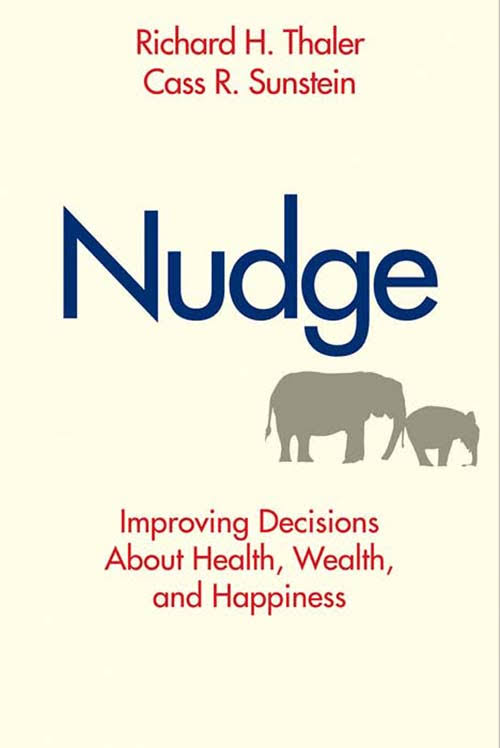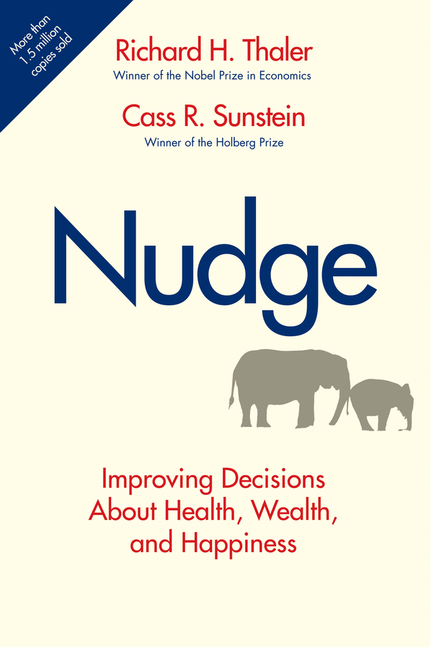Nudge: Improving Decisions About Health, Wealth, and Happiness
April 11, 2008
Nudge: Improving Decisions About Health, Wealth, and Happiness by Richard. H. Thaler and Cass R.

Nudge: Improving Decisions About Health, Wealth, and Happiness by Richard. H. Thaler and Cass R. Sunstein, Yale University Press, 304 pages, $26.00, Hardcover, April 2008, ISBN 9780300122237
Every layout and piece of input we interact with influences the decisions we make each day. At the grocery store, product placement plays to our impressionable nature with candy stocked near the cash register. Our magazine subscriptions renew automatically because the magazine companies know busy subscribers rarely take the time to unsubscribe, even when magazines begin to pile up on our kitchen table. Our cars remind us with an annoying beep to buckle up. When it comes to what influences our decision-making, authors Richard Thaler and Cass Sunstein explain that, "A good rule of thumb is to assume that 'everything matters.'"
That's where Nudge comes into play. Thaler and Sunstein are believers in libertarian paternalism, a belief combining two seemingly disparate ideas. The libertarian aspect reflects the belief that, "in general, people should be free to do what they like--and to opt out of undesirable arrangements if they want to." The paternalistic side seeks to influence "choices in a way that will make choosers better off, as judged by themselves." That is, the choices stay the same; it is the presentation of the choices that may change.
Take retirement plans, for example. One application of libertarian paternalism would be a human resource manager electing for an automatic annual renewal of employees' 401K benefits. Employees would be free to leave the plan at any point. The automatic renewal would simply remedy our tendency to be forgetful and push things off until the last minute. This nudge, Thaler and Sunstein would argue, would be in the best interest of the employees. Most of us would agree we would be better off in the long run.
There are numerous applications for nudges that can, and do, exist. As the authors point out, one of the first misconceptions is that "it is possible to avoid influencing people's choices. In many situations, some organization or agent must make a choice that will affect the behavior of some other people." They go on to imbue readers with six factors that influence our choices, hoping that with this knowledge, companies, governments and choice architects will guide people responsibly with small nudges. With Nudge, Thaler and Sunstein show that liberty and guidance can be the right combination to help people make smarter decisions.


